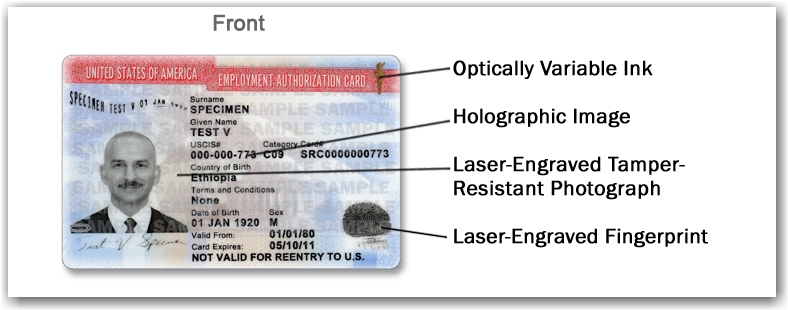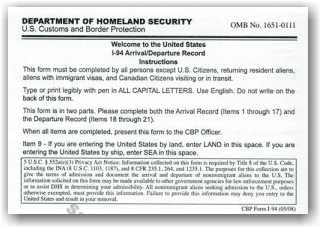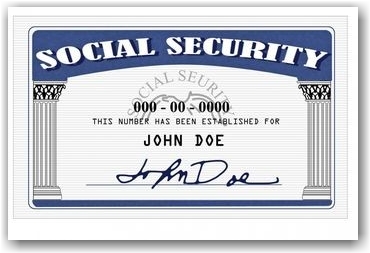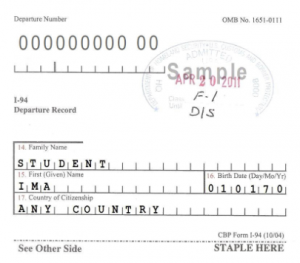Archive for the ‘I-9/E-Verify News’ Category
Friday, September 28th, 2012

The OSC announced today that they had reached an agreement with a janitorial and facilities management company in Florida that was fined for mishandling the TNC process with the employee. The employer was fined $8800 (back pay and civil penalties) and had to agree to training by the Justice Department on the anti-discrimination provision and training by the Department of Homeland Security on proper E-Verify procedures.
It is imperative that you follow appropriate TNC procedures and supply your employees with the required documentation so that they can resolve TNC issues. Sit down with them, show them the information that you input into E-Verify and make sure that it’s accurate. Provide them with the appropriate TNC notice and SSA or DHS referral letter. Here is an excellent training video that we recommend you use as a tool in your organization.
Check out our employer resource center here: www.I-9Audits.com and our services and solutions here: www-employer-compliance.com. Stay informed and sign up to receive our information.
Tags: Department Of Homeland Security (DHS), E-Verify, E-Verify Training, Employment Eligibility Verification, I-9, I-9/E-Verify News, ICE, SSA, Tentative Noncomfirmations, TNC
Posted in Department Of Labor (DOL), DOJ, Employer Compliance, I-9/E-Verify News, ICE, Immigration News, OSC, Social Security | Comments Off on E-Verify and TNC Resolution
Monday, September 17th, 2012
 On Sept. 16, 2012, E-Verify provided several enhancements to improve your experience with the program. We particularly like these new features:
On Sept. 16, 2012, E-Verify provided several enhancements to improve your experience with the program. We particularly like these new features:
- For Corporate Administrators: A new Web-based tutorial replaces the live webinar training required of new Corporate Administrators. The tutorial also serves as a resource for existing Corporate Administrators. To access the E-Verify Tutorial for Corporate Administrators, select the ‘Take Tutorial’ link under My Resources in the left-hand navigation menu.
- A new E-Verify User Manual for Corporate Administrators is now available from the ‘View User Manual’ link under My Resources in the left-hand navigation menu.
- They have also come up with a process for HR’s who must record the foreign passport and I-94 arrival-departure card (that can now take up to 45 days to access) in E-Verify
Should you wish to sign up for USCIS’ free E-Verify training, they have several monthly sessions. You can access their training schedule here.
By the way, the program is now compatible with Firefox, Chrome and Safari.
Tags: E-Verify Corporate Administrators, E-Verify Enhancements, E-Verify Training, Employment Verification, I-9 Form, I-9/E-Verify News, Immigration News, Legal Workforce, USCIS
Posted in Employer Compliance, I-9/E-Verify News, ICE, Immigration News, USCIS | Comments Off on E-Verify Releases New Enhancements
Monday, September 10th, 2012
This employer really crossed the line in continuing to employ unauthorized workers AFTER an ICE audit of their I-9 records commenced, and failed to produce I-9 records for them on 3 previous occasions while transferring them to other jobsite locations.
Here’s the story…. The charges against the owner and Production Manager, Yoel A. Wazana, Wazana Brothers International, Inc., based in Van Nuys, CA, doing business under the name Micro Solutions Enterprises (MSE), are the result of an investigation into MSE’s hiring practices that was initiated by HSI in 2007. According to court documents, shortly after MSE received notification in April 2007 that HSI planned to audit the company’s payroll and hiring records, Wazana directed that about 80 of MSE’s most experienced employees – at least 53 of whom did not have work authorization – be relocated to another manufacturing facility. When investigators requested hiring records from MSE on three separate occasions, the company failed to provide paperwork for those unauthorized workers. The plea agreements filed in this case also describe how, after learning of the ICE audit, Wazana conducted meetings with MSE’s assembly line workers, instructing them to obtain valid work authorization documents and return with those documents, suggesting that he did not care if the documents were actually theirs.
In February 2008, HSI special agents executed a search warrant at MSE’s Van Nuys plant. During the enforcement operation, special agents arrested eight current and former company workers on criminal charges and another 130 employees on administrative immigration violations. The felony charge of false representation of a Social Security number carries a maximum penalty of five years in prison and a $250,000 fine.
MSE has agreed to plead guilty to one misdemeanor count of continuing employment of unauthorized aliens. In a plea agreement filed last month, the firm admits hiring approximately 55 unauthorized workers, and then continuing to employ them after the ICE audit had begun. The company admits that it knew, or deliberately avoided knowledge of the fact, that the individuals were not authorized to work in the United States.
The company’s plea agreement represents a global settlement of criminal and civil charges against the firm. Under the terms of the plea agreement negotiated by ICE and the United States Attorney’s Office, MSE agreed to pay approximately $267,000 in civil and criminal fines.
Beyond the monetary sanctions, the plea agreement calls for the company to be on probation for three years, during which time it will implement a series of stringent measures to ensure it is complying with the nation’s hiring laws. Those steps include retaining an independent compliance monitor (this is the first time we’ve heard of an ‘independent compliance monitor’ being mentioned) to oversee the completion and maintenance of the firm’s hiring records, and providing training to employees regarding federal hiring laws. The plea agreement takes into account the company’s willingness to take responsibility for its prior criminal conduct and to implement a rigorous program to ensure full compliance with federal hiring laws in the future.
In 2009, HSI implemented a new, comprehensive strategy to reduce the demand for illegal employment and protect employment opportunities for the nation’s lawful workforce. Under this strategy, HSI is focusing its resources on the auditing and investigation of employers suspected of cultivating illegal workplaces by knowingly employing illegal workers. In the last year, HSI has levied a record number of civil and criminal penalties against employers who violate immigration laws.
An employer’s blatant disregard for employment-related immigration law has been proven time and time again in our blog reporting of these cases to be an expensive, painful, reputation damaging and unnecessary path. Call our office to establish a compliant workforce, 562 612.3996.
Tags: Continuing to Employ Unauthorized Aliens, DACA, HSI, I-9 AUDIT, I-9/E-Verify News, ICE, ICE Audit, ICE Penalties, ICE Violations, Immigration Reform, Legal Workforce, Micro Solutions Enterprises, MSE, Unauthorized Employment, Undocumented Workers, Yoel Wazana
Posted in Comprehensive Immigration Reform, DACA | DAPA, Department Of Homeland Security (DHS), Employer Compliance, I-9/E-Verify News, ICE, Immigration News | Comments Off on I-9/E-Verify News: Criminal Charges in HSI Probe for Hiring Violations Coverup
Friday, September 7th, 2012
The Department of Homeland Security issued an update today that the Department of Homeland Security (DHS) is working to resolve this issue and will have a fix on September 14, 2012.
:::::::::::::::::::::::::::::
Without any advance notice, the CBP has made changes that affect the I-9 form by no longer issuing paper I-94 cards and no longer stamping I-20 forms for F and M student visas, or form DS-2019 Certificate of Eligibility for Exchange Visitors and Foreign Students, affecting both J and F visa holders.
Customs and Border Protection is in the process of automating traveler arrival records (I-94 cards) to streamline passenger processing. The current processing time for entering foreign visitors’ travel information into the I-94 database is 30 days or more. This does not affect the majority of foreign travelers visiting for business or leisure and will not affect any visitor’s record of departure. But it will greatly influence how you document Section 2 of the I-9 form for the nonimmigrant employee that produces a List A foreign passport with an I-94 entry card.
PLEASE NOTE: With the newly proposed 2-page I-9 form, no guidance has as yet been provided regarding the I-94 card as an acceptable List A document in concert with a foreign passport. We will keep you posted concerning these changes as soon as we receive new guidance. In the meantime, we recommend that you print out this information and attach it to any new employee’s I-9 form who would normally produce an I-94 record (but doesn’t have one and is waiting to access an electronic version) along with a foreign passport as a List A document.
CBP has suggested the following: Nomiggrants may need to prove their legal-visitor status within the first 30-45 days of their U.S. stay to:
Employers;
Motor vehicle registration or drivers’ licensing agencies;
The Social Security Administration;
U.S. Citizenship and Immigration Services; or
Universities and schools.
If during this timeframe, visitors need to provide evidence of legal status they should include the following:
Unexpired foreign passport; and
Country of Citizenship
CBP Arrival/Departure Record, Form I-94 (if issued)
Contact CBP for more information or with questions.
Tel: (877) CBP-5511
TTD: (866) 880-6582
If a state benefit granting agency rejects an unstamped Form I-20/DS-2019, applicants may make an appointment with USCIS online through InfoPass and take their Form I-20/DS-2019 to their local USCIS office to be stamped. ( InfoPass ) This transitional step will end on Nov. 21, 2012.
International students and scholars who encounter issues with their state or federal benefit applications should continue to contact the Immigration and Customs Enforcement Student and Exchange Visitor Program (SEVP) at (703) 603-3400 or SEVP@dhs.gov.
Please feel free to contact our office should you have questions concerning these changes, 562 612.3996 or email info@immigrationcompliancegroup.com
Tags: CBP, DS-2019 form, Electronic I-94 card, F Visa, I-9 Form, I-9/E-Verify News, I-94 Card, ICE, Immigration News, J Visa, Legal Workforce, M Visa, New I-9 Form, Student Visas, USCIS
Posted in Customs & Border Protection(CBP), Employer Compliance, I-9/E-Verify News, ICE, Immigration Legislation, Immigration News, USCIS | Comments Off on Update: CBP Makes Changes Affecting I-9 Form, F, M and J Visa Stamping
Monday, September 3rd, 2012
By: Timothy Sutton, Communications Editor
 Today, recruiters, human resource managers, and small business owners utilize the Internet to recruit new employees. Online recruiting is cheap, efficient, and reaches a much broader audience than traditional forms of media. While there are numerous advantages to employing a professional staffing agency to locate prospective employees through the Internet, many employers choose to self-publish want ads through popular websites like monster.com or craiglist.org. Self-publishing online job posting gives the employer complete control over when, where, and how long a post will be visible to the public. Ultimately, do-it-yourself recruiting can be personally tailored to suit a particular employer’s needs.
Today, recruiters, human resource managers, and small business owners utilize the Internet to recruit new employees. Online recruiting is cheap, efficient, and reaches a much broader audience than traditional forms of media. While there are numerous advantages to employing a professional staffing agency to locate prospective employees through the Internet, many employers choose to self-publish want ads through popular websites like monster.com or craiglist.org. Self-publishing online job posting gives the employer complete control over when, where, and how long a post will be visible to the public. Ultimately, do-it-yourself recruiting can be personally tailored to suit a particular employer’s needs.
But recruiters beware. The Internet is much more sophisticated than a virtual corkboard. Keywords and phrases in your job listings can be tracked and monitored by government software, then stored in databases. Recently, the Civil Rights Division of the Office of Special Counsel (OSC) released a Best Practices notice for online job posting. Whether this notice foreshadows future litigation over civil rights violations in hiring practices is yet to be determined; regardless, the message is clear, employers need to exercise caution when recruiting online because the OSC is monitoring online want ads.
Immigration laws prohibit the use of discriminatory language regarding U.S. Citizenship, lawful permanent residence, citizenship status, or national origin unless required by law, regulation or executive order. Curiously, the OSC notice was released shortly after a handful of states attempted to curtail the rights of Deferred Action Childhood Arrival qualifiers to obtain state identification (see our previous post here). There is no data revealing any increase in discriminatory language found in online job postings, but a simple keyword search on either monster.com or craigslist.org reveals numerous non-compliant ads. For instance, if the word “citizen” is entered into Craigslist, ads for dishwashers, personal assistants, security guards, and caregivers pop up. Each ad contains some version of the following discriminatory language that the OSC notice clearly forbids pursuant to the Immigration and Nationality Act at § 1324b that prohibits discrimination based on the citizenship status or national origin in the hiring, firing unfair document practices (“document abuse”) during employment eligibility verification process, and retaliation:
- “Only U.S. Citizens”
- “Citizenship requirement”*
- “Only U.S. Citizens or Green Card Holders”
- “H-1Bs Only”
- “Must have a U.S. Passport”
- “Must have a green card”
One explanation presented by the OSC for the common use of such language is the misinterpretation of federal employment laws. Employers are not limited to the recruitment of U.S. citizens. In fact, we recently published an article on the proper method of verifying the legal employment status of refugee/asylees. Due to the complexity of adhering to the legal requirements of recruiting, hiring, and employing individuals in today’s diverse workplace, employers should seek the professional guidance of an attorney. The cost savings and convenience of self-publishing job postings are heavily outweighed by the potential financial penalties and negative publicity of losing an anti-discrimination lawsuit.
Our office has the experience and successful track record necessary to protect the interests of your enterprise. For more information, contact one of our immigration professionals at info@immigrationcompliancegroup.com or call 562 612.3996.
Tags: Anti-Discrimination, Anti-Discrimination Lawsuits, Civil Rights Violations, Discriminatory Language, Employer Comopliance Training, HR Professionals, I-9 Form, I-9/E-Verify News, Immigraiton News, Immigration Compliance Group, Internet Recruitment, Legal Workforce, OSC, OSC Best Practices for Job Posting, Recruiters, Recruitment Discrimination, Staffing Agencies, Talent Acquisition, Unfair Employment Practices
Posted in DACA | DAPA, Employer Compliance, I-9/E-Verify News, ICE, Immigration News, OSC, Staffing Agencies | Comments Off on RECRUITING: Internet Justice – Respecting Civil Rights in Online Recruiting
Thursday, August 16th, 2012
The Department of Justice Office of Public Affairs recently published a press release pertaining to the employment of two refugees resolving allegations that the company discriminated under the anti-discrimination provision of the Immigration and Nationality Act (INA), when it impermissibly delayed the start date of two refugees after requiring them to provide specific Form I-9 documentation. Best Packing’s violations occurred when they required the refugees to supply the company with additional Form I-9 verification documents in excess of the law. The claim alleged that other non-refugee employees were not required to supply documents other than state issued licenses and social security cards.
In two charges filed with the department, the refugees alleged that they were not allowed to begin employment until they produced unexpired, Department of Homeland Security-issued employment authorization documents, despite the fact that they initially presented sufficient documentation for employment eligibility verification purposes. The charging parties had presented unexpired state identification cards and unrestricted Social Security cards. The state ID’s and unrestricted SS cards were deemed insufficient proof of work authorization.
It is necessary for all those charged with Form I-9 processing at your organization to be very familiar with the list of acceptable documents and to have a thorough understanding of the fact that each employee has the right to present a list A document or a combination B plus C document as long as they are acceptable documents, appear to be genuine and represent the employee that is before you.
Under the settlement agreement, Best Packing agreed to pay $4,379 in back pay and comply with all the requirements of the INA. Understanding the Form I-9 requirements for verifying refugee/asylee(s) will prevent your company from falling victim to similar discriminatory hiring practices.
The process by which an employer is required to verify the employment eligibility of a refugee/asylee(s) when presented with documentation other than the above-referenced List B plus List C combination, can be a bit complicated. Let’s review this.
Asylees and Refugees are individuals seeking the protection of the United States due to persecution suffered in the home country based upon: race, religion, nationality, social group, or political ideology. These individuals are authorized to work in the US because of their immigration status. When presented with documentation of asylum or refugee status, it is advisable to be aware of the following in regard to examining the I-9 form and the documents presented:
SECTION 1:
- The employee should check the “An alien authorized to work” box
- Write the I-94 or Alien Registration Number in the first space
- Write “N/A” in the second space, because their employment authorization does not expire

SECTION 2:
Acceptable Documents are I-94, I-766, or their Employment Authorization Document also known as an EAD card

NOTE: this section presents two different scenarios that require strict attention to time restrictions and combinations of required documents to be presented in order to comply with the USCIS regulations. To complete this section choose from the applicable scenarios below:
Scenario One: Refugee presents a Form I-94:
When presented with a Form I-94 containing an unexpired refugee admission stamp, the employer must accept it as a receipt establishing both employment authorization and identity for 90 days. After 90-days, the employee must present either an EAD or a combination of a List B document and List C (an unrestricted social security card.)



Scenario Two: Asylee presents a Form I-94:
An employer must accept Form I-94 or Form I-94A with one of the stamps or notations below indicating asylee status:
- Asylum granted indefinitely
- 8 CFR 274a.12(a)(5)
- INA 208
This is a List C document that does not require/contain an expiration date. However, the asylee will need to present a List B identity document with this Form I-94.
*Decisions from immigration judges granting asylum are not acceptable.


For further assistance on training your company’s hiring personnel on all of the requirements of Form I-9 compliance, contact one of our immigration professionals at info@immigrationcompliancegroup.com or call 562 612.3996.
Tags: Best Packaging I-9 Ruling, DOJ, I-9 Acceptable Documents, I-9 Anti-Discrimination Provision, I-9 Discrimination, I-9 Document Examination, I-9 for Refugees/Asylees, I-9 Over-Documentation, I-9 Training, I-9/E-Verify News, ICE, OSC, Worksite Enforcement
Posted in Employer Compliance, I-9/E-Verify News, ICE, Immigration News, Uncategorized, USCIS | Comments Off on Form I-9 How To Guide: Employing Refugee/Asylee(s)
Tuesday, August 14th, 2012
By: Timothy Sutton, Communications Editor

The biggest names in banking, Goldman Sachs, JP Morgan, Wells Fargo, Bank of America, Lehman Brothers, MF Global, Countrywide, and Chase have been subject to financial misconduct investigations for imprudently squandering hundreds of millions of dollars. Last week the Justice Department made the unfortunate announcement that Goldman Sachs would not be charged for its infamous trades. Yet over the past few years, despite the devastating impact hedging bad debt has done to our economy, virtually no criminal or civil penalties have ensued. Economists and legal analysts have a range of theories attempting to explain how crimes of “greed” go virtually unpunished; one plausible explanation is we are all to blame: investors, bankers, consumers, government and regulators all contribute to the degradation of our banking system. The SEC has become somewhat of a paper tiger launching costly and intricate investigations resulting in piles of reports that ultimately assign no guilt.
Conversely, ICE investigations almost invariably result in hefty civil and even criminal fines. Deportation raids and I-9 audits are typically swift and allow few of the procedural processes that SEC, Department of Treasury, or Department of Labor investigations require. Over the past few years, there have been record numbers in both deportations and employer sanctions issued by ICE and the USCIS. Unlike greed, failure to maintain a lawful workforce endures the cold chill of ICE.
Shockingly, the public reaction to the financial crisis has been fractured and highly politicized. Remember the Tea Party and Occupy movements? Alternatively, punishing companies employing immigrant workers has found a stronghold in national politics. While it is unjustifiable to violate any law of the United States, it is alarming that those who protest against the corruption of financial institutions are considered extremists, but those who protest against hiring immigrants are nationalists? It is possible that the simpler the crime the harsher the time explains this phenomenon. Americans don’t understand how billions of dollars could disappear from the banks they entrusted their life-savings to; but can easily conceptualize how an immigrant workforce may under-cut “American” employment.
As business owners, violating simple duties like Form I-9 compliance and employment verification through E-Verify may result in the most damaging penalties. There are no congressional investigations, lengthy judicial proceedings, or public sentiment to lessen the blow of an ICE audit. In light of our current social political environment it would be a prudent investment to seek the advice of immigration professionals to proactively prepare for an immigration audit. For more information contact one of our immigration professionals at info@immigrationcompliancegroup.com or call 562 612.3996.
Tags: Bank of America, Chase, Countrywide, Curency Hedging, Goldman Sachs, I-9/E-Verify News, ICE, ICE Audits, JP Morgan, Lehman Brothers, MF Global, Mortgage-Backed Securities, Too Big to Fail, Wall Street Firms, Wall Street Meltdown, Wells Fargo
Posted in DOJ, Employer Compliance, I-9/E-Verify News, ICE, Immigration News | Comments Off on Enforcement Seesaw: Financial v. Immigration Violations | Immigration Compliance Group News
Sunday, August 12th, 2012
By: Timothy Sutton, Communications Editor
On August 10, 2012, the 3rd Circuit Court of Appeals ruled in favor of Wal-Mart Stores Inc., facing charges for acts of transporting illegal immigrants, harboring illegal immigrants, encouraging illegal immigration, conspiracy to commit money laundering, and involuntary servitude. Zavala et al. v. Wal-Mart Stores Inc., spanned eight years and four judicial opinions. The allegations against Wal-Mart suggested that senior officials knowingly and willingly permitted contractors and sub-contractor to hire illegal immigrants to perform after-hour janitorial services.
In their defense, Wal-Mart asserted that the plaintiff janitorial workers were not employees (therefore, not under their control), but also performed work at a Marriott hotel, a movie theater, and remodeling homes. Further, Wal–Mart often used store associates (regular, non-contract employees) to clean its stores. As a result, the court found that Wal-Mart did not knowingly hire illegal immigrant workers or encourage their contractors to do so. The court refused to certifying the class action based upon the shared discrete characteristic of plaintiffs as undocumented immigrants, stating: “Being similarly situated does not mean simply sharing a common status, like being an illegal immigrant.”
Moving forward, it is likely that Wal-Mart will amend its screening and compliance policies when hiring contractual workers. Many of the allegations against the big-box retailer reveal suspect employment practices that should be avoided including:
- Management commenting on immigration status of workers
- Using out-of-state relief workers immediately following the arrest of workers by federal immigration authorities
- Allowing workers to store personal belongings in store
- Allowing workers to sleep in store
For more information about the latest immigration court rulings and other breaking immigration news, subscribe to our blog and contact our office to discuss your I-9 audits, training and compliance program needs, 562 612.3996, info@immigrationcompliancegroup.com.
Tags: Employer Compliance I-9/E-Verify, ICE, illegal immigrants, Legal Workforce, Undocumented Workers, Walmart Janitor Contractors, Walmart Janitorial Class Action
Posted in Employer Compliance, I-9/E-Verify News, ICE, Immigration News | Comments Off on Squeaky Clean? Wal-Mart Escapes Janitorial Class Action | Immigration Compliance Group News
Friday, August 3rd, 2012
 By: Timothy Sutton, Communications Editor
By: Timothy Sutton, Communications Editor
Shortly after ICE began their Form I-9 audit of the San Antonio based sushi chain, Sushi Zushi, an exodus of employees forced the company into a weeklong-statewide shutdown. After an internal announcement by Sushi Zushi management to employees of the routine audit, a wave of scared employees did not return to their jobs on Friday Morning. A public statement was issued by Sushi Zushi’s public relations spokesperson; Judy McCarter detailing the company’s decision:
STATEMENT FROM SUSHI ZUSHI, Friday, July 27, 2012
Sushi Zushi has temporarily suspended its operations and closed its restaurants in San Antonio, Austin and the DFW Metroplex. We plan to resume operations as soon as possible.
The decision to close the restaurants was made at Sushi Zushi today by executive management due to an unanticipated internal reaction to news of a routine I-9 audit. Several vital employees have chosen not to report to work. This has affected our ability to provide our expected level of service to guests. CEO Alfonso Tomita is returning from travels outside the country.
Sushi Zushi’s policy is to comply with all federal, state and local laws and regulations. And Sushi Zushi has made its best efforts to comply with I-9 requirements always done appropriate due diligence on all its staff. Sushi Zushi is working with legal counsel to respond to the government’s audit.
We wish to be clear – there was no raid by the government on our operations. Nor has any employee been detained by the government or terminated by the company. Sushi Zushi is responding to a routine I-9 audit. We apologize in advance for the inconvenience and appreciate the patience of our loyal guests while we work through this issue.
Company management immediately posted want ad’s on Craigslist and Facebook. Their customers posted their concerns across social media, including accusations of mismanagement that surfaced on reddit.com. In the midst of this audit meltdown, an employee announced via facebook that he was promoted from delivery driver to sushi chef. With the company’s reputation spinning out of control, their facebook page had posts of former kitchen employees who remarked, “The food won’t be the same without us,” while other employees joked with friends that they had a week-off work to “fill out their I-9 forms.”
Before ICE issues a dollar of fines or fees, Sushi Zushi will suffer hundreds of thousands in loses and devastating harm to their reputation. Sushi Zushi employees fled because they were not educated on the differences between an I-9 audit and deportation raids. Clearly, today’s ICE audits are shaping up to be equally as effective in deterring unlawful employment as raids of the past. To prevent your company from becoming the next Sushi Zushi, contact our immigration professionals for their expert knowledge on Form I-9 compliance, and sign up to receive our information and visit our Employer Resource Center: www.I-9Audits.com
Tags: I-9 AUDIT, I-9 Fines, I-9 management, I-9 Training, I-9/E-Verify News, ICE Audit, Legal Workforce, Sushi Zushi Audit, Undocumented Workers, Worksite Enforcement
Posted in I-9/E-Verify News, ICE, Immigration News, USCIS | Comments Off on Form I-9 Audit Prompts Sushi Zushi Closure – Fish on ICE
Sunday, July 29th, 2012
 By: Timothy Sutton, ICG Communications Editor
By: Timothy Sutton, ICG Communications Editor
High unemployment across the country may be contributing to the shift in focus by numerous State and Federal agencies toward eradicating the underground economy. This term is used in the insurance industry to refer to unlicensed, untaxed, and uninsured employers or contractors. In immigration circles, the illegal workforce is the common term used to represent undocumented workers who like workers in the underground economy, represent the unlawful economic advantage unscrupulous employers have over law-abiding businesses. In response to these illegal employment practices, the government is on a crusade to incentivize the legal employment of American workers.
This July, California’s Department of Insurance spearheaded a multi-agency task force similar to undertakings of ICE, DHS, OSC, and SEC. Detectives from the California Department of Insurance (CDI), the Contractors State License Board (CSLB), Employment Development Department (EDD), and County District Attorneys’ offices effectively created their own “Avengers” partnership to make an 11 county sweep across California, resulting in 104 enforcement actions.
US businesses are not strangers to regulatory enforcement. Arguably, complicated regulations on tax, insurance, employment and immigration laws deter the success of small to mid-sized American companies trying to expand into today’s global marketplace. Large corporations avail themselves of depressed wages and lenient international labor regulations by outsourcing labor to under-developed nations. Government regulatory and enforcement agencies like ICE have no jurisdiction to punish large corporations that exploit workers overseas. Consequently, “Avengers,” like the California task force against the underground economy, mostly impact local and domestic companies, often to their demise.
Competing against global-economic influences on a long-term basis in any industry requires strict scrutiny of company hiring policies, employment practices, and compliance with a complex myriad of tax, insurance, and immigration laws. If your business employs a domestic workforce, large or small, contact us to learn more about workforce compliance and subscribe to our blog for the latest immigration news and updates.
Tags: CA Insurance Commissioner Dave Jones, California Department of Insurance, California State Immigration, California Unemployment, Comprehensive Immigration Reform, I-9/E-Verify News, Illegal Workforce, Immigration Reform, Statewide Joint Enforcement Strike Force Operation, Underground Economy, Undocumented Workers, US Immigration Policy
Posted in Comprehensive Immigration Reform, I-9/E-Verify News, Immigration Legislation, Immigration News | Comments Off on California’s “Underground Economy” Avengers | Immigration Compliance Group NEWS












